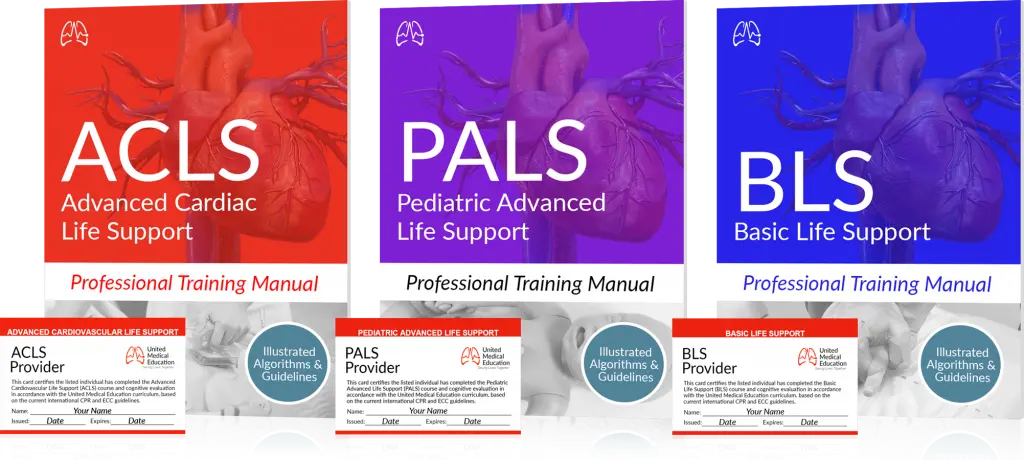Pediatric Advanced Life Support (PALS) training has become an invaluable resource in enhancing the delivery of care by midwives. When midwives are involved in the earliest stages of life, the PALS course equips them with an additional layer of knowledge and ability, helping them manage those critical first moments confidently and effectively. PALS certification goes a step further than basic neonatal care, offering a skill set specifically curated for handling emergencies involving newborns and children. United Medical Education’s platform provides access to PALS training for all aspiring students at no cost, empowering them to uplift their practice and enrich the lives of the patients they serve.
Decoding PALS and its Integral Elements
A closer examination of PALS training reveals a multi-dimensional approach that forms the backbone of its structure, aimed at proficiently dealing with a spectrum of pediatric emergencies. This training imparts precious knowledge to healthcare professionals in varied areas such as the management of respiratory issues, shock, and cardiac emergencies, along with adept utilization of emergency medical equipment.
When integrated into the field of midwifery, these facets of PALS training significantly enhance a midwife’s capabilities. They provide the tools necessary to navigate complicated birth scenarios and postpartum emergencies quickly and with assured competence.
Significance of PALS Training in Neonatal Resuscitation
Pediatric Advanced Life Support (PALS) training is important in the realm of neonatal resuscitation – a setting where each passing moment is of absolute importance. When a newborn is in need of immediate medical attention, midwives equipped with PALS training can render essential life-supportive measures before the child is transported to a specialized neonatal intensive care unit.
PALS training involves adhering to stringent protocols, which are routinely revised and updated in accordance with the latest advances in scientific research and endorsed clinical guidelines. The rigor of these standards ensures that healthcare providers, such as midwives, who have undergone PALS training are optimally positioned to enhance outcomes in neonatal emergencies.
United Medical Education, in line with its dedication to advancing medical knowledge and skills, offers practice exams at no charge for PALS certification aspirants. These practice exams are invaluable tools that midwives can use to familiarize themselves with the pivotal PALS protocols. By honing their skills in a simulated setting, midwives can build confidence in their abilities, which will prove indispensable when confronted with real-life emergency situations where rapid response is critical.
Boosting Clinical Proficiency with PALS
Pediatric Advanced Life Support (PALS) training is much more than just a lesson in technical operations. It adopts a comprehensive approach, aiming at enhancing not just the practical skills of healthcare professionals, but also their clinical decision-making abilities. It is this holistic approach that sets PALS training apart and makes it an indispensable part of a midwife’s education.
This training equips midwives with the ability to accurately assess the clinical situation, enabling them to make swift, yet informed decisions when they matter most. It enhances their ability to initiate appropriate interventions promptly, potentially making the difference between life and death in critical scenarios. Furthermore, PALS training fine-tunes the communication skills of midwives, ensuring effective interaction with the wider healthcare team. Such clear and effective communication plays a crucial role in emergency situations, where coordinated team efforts are vital for successful outcomes.
United Medical Education, a pioneer in providing advanced medical training, includes real-world scenarios and case studies as an essential part of their PALS course. By working through these realistic scenarios, midwives can understand and appreciate the complexities of real-life emergencies. The invaluable learning experiences they acquire significantly enriches the overall skill set of midwives, making them more confident and capable in handling pediatric emergencies.
Preparing for Pediatric Emergencies with PALS Training
Although the primary focus of midwifery lies in the care of newborns, the spectrum of responsibilities can sometimes extend beyond this focus. Pediatric Advanced Life Support (PALS) training serves as an instrumental resource in these situations, providing midwives with the tools needed to handle emergencies involving not just newborns, but also older children.
This versatility of PALS training becomes exceptionally valuable for midwives who operate within the context of home births. In these settings, it’s quite common for older siblings to be present. In the event of an emergency, a PALS-certified midwife can step in confidently, equipped with the knowledge and skills to handle pediatric emergencies effectively. An example of this is when my friend Wendy, was heavy with her second child. She was expecting a straightforward delivery at the hospital as with her previous births. The baby, however, had other plans. During a routine check-up at her home, Wendy began experiencing strong contractions. The midwife, trained in PALS, recognized the signs of impending labor and made the call to prepare for a home birth. Even though this was unplanned and the only person present was her nine year-old son, the midwife was able to think quickly, and skillfully handle the situation to ensure a successful delivery. Wendy was incredibly thankful for the midwife’s PALS training that equipped her to handle this surprise scenario professionally and safely.
PALS Certification: An Investment in Professional Reputation
Obtaining Pediatric Advanced Life Support (PALS) certification goes beyond merely adding another achievement to a professional portfolio. It is a powerful endorsement of a midwife’s dedication to their role, their commitment to continual professional development, and their unwavering focus on patient well-being.
Moreover, PALS certification opens up new avenues for career growth. It is a highly valued credential in the healthcare sector and is recognized and appreciated across various healthcare environments. With PALS certification, midwives can often find themselves better positioned for career advancements, leadership roles, or specialist positions. It empowers them to explore new professional opportunities, whether in specialized neonatal care units, pediatric emergency departments, or advanced midwifery roles.
The Holistic Impact of PALS Training on Midwifery
In summary, PALS training offers a robust augmentation to the practice of midwifery, arming professionals with the necessary skills to confidently handle emergencies. It symbolizes a commitment to superior care, to safeguarding the lives they help bring into the world, and to their cherished profession. We, at United Medical Education, encourage all midwives to explore our free PALS training. Equip yourselves with the knowledge that allows you to act decisively, enhance patient outcomes, and perpetually advance your invaluable practice.








